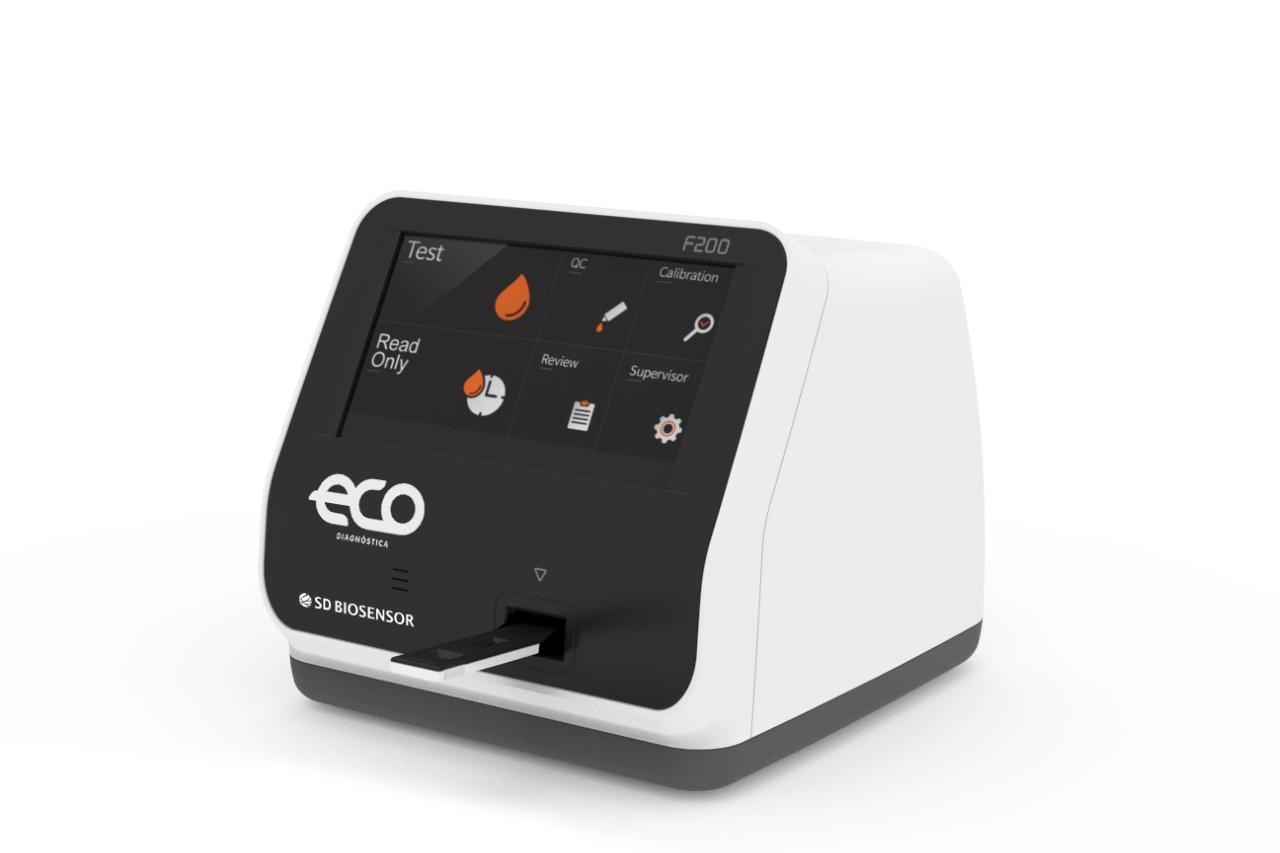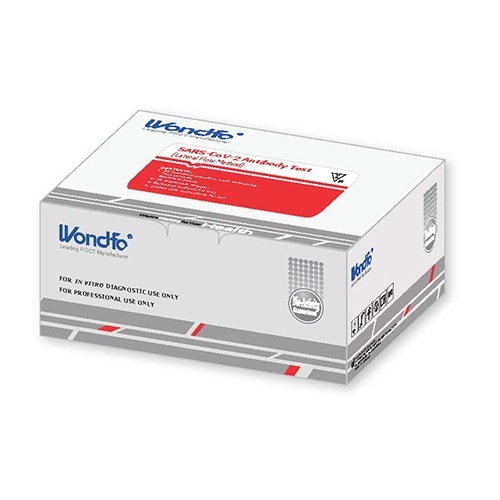RIO DE JANEIRO, BRAZIL – Test, test, test. That was the recommendation of the Director General of the World Health Organization (WHO), Tedros Adhanom, in a speech this month on how countries could best fight the spread of the Covid-19, a disease caused by the novel coronavirus.
Worldwide, tests to detect the presence of the virus in humans are lacking. As not all people with symptoms can be diagnosed, WHO believes that there is underreporting of cases in many countries.
In order to deal with this challenge in Brazil, ANVISA, the Brazilian federal health agency that approves medications and therapies in the country, has recently started to approve new types of tests for coronavirus.
Last week saw the approval of the first so-called “rapid” tests, which use a different type of technology than the one currently used. Many are able to diagnose in ten minutes and require fewer professionals to carry out the procedure.

On Thursday, March 19th, eight tests were approved by ANVISA, all of the rapid type. On Monday, March 22nd, the agency published three further approvals in the Federal Gazette. Two are the most widely used type in Brazil today, the so-called biomolecular, and another of the fast type.
Only Eco Diagnóstica, from Minas Gerais, has been granted three registrations, for three different model tests, although all of them are of the fast type. The Labtest company from Minas Gerais has also gained approval from ANVISA.
By Tuesday morning, March 24th, other companies, in addition to Eco, had received authorization from ANVISA to market their coronavirus tests in Brazil. In addition to Eco, they have secured registrations from companies such as Swiss Roche, which will produce the test in its facilities abroad and send it to Brazil.
Importing companies that do not manufacture the tests themselves but instead bring them from manufacturers abroad have also received approval from ANVISA. This is the case of the Brazilian companies Biocon and Celer (which import from China’s Wondfo), MedLevesohn (which imports from China’s Biotest) and Biomédica (which imports from Spain’s CerTest Biotec). QR Consulting will import the tests from the United States and Ebram will also import the tests from China.
How the new tests work
The “quick” tests bear that title for a reason. In many of them, results can be released in less than 20 minutes, and it takes little laboratory analysis to determine the results.
In general, virtually all approved tests in Brazil so far work with a blood sample, collected quickly. The sample is analyzed in minutes by the device that performs the test.
After contacting a reagent, the sample may present specific levels of antibodies, which the body produces to fight viruses such as the Sars-CoV-2, the official name of this novel coronavirus. If there is a certain amount of antibodies, it is an indication that the patient is infected. Companies claim that tests are over 90 percent accurate.
As it takes some time for the body to develop antibodies, the immunochromatographic test is recommended for more advanced stages of the disease, after about eight or ten days. The method is also able to identify asymptomatic people – which usually occurs mainly among youths.
The biomolecular test is able to detect the virus in the first few days. This type uses a technique clinically called Real Time – PCR. The test detects if the sample has the genetic material of the virus, the so-called RNA.
The biomolecular test is the safest and most accurate considered by the WHO, but it is also the most complex and expensive to perform.
These tests were already being developed in some Brazilian laboratories. Therefore, they could be used with no need to undergo the same process required by ANVISA to the others. From the list of new approved tests, only Roche and Biomédica (which is imported from Spain) use the biomolecular technique.

Despite being the first in the front line when the crisis began, biomolecular tests quickly began to end, as has happened in other parts of the world. The major issue with these tests is the small number of laboratories able to perform them, not enough skilled labor to operate the test and read the results and, ultimately, the small amount of material available – the so-called test kits.
The Roche test, for instance, is also biomolecular, but can be up to ten times faster than the traditional one, as it is automated and does not require much human interference. Before going through ANVISA, the test had been approved by the FDA, the regulatory agency in the United States – which pushed Roche’s shares up by more than eight percent after the announcement last March 13th.
Barra, from Sabin, points out that “From now on there will be a range of technologies to detect the Covid-19 virus, the pandemic is a very favorable time for innovation. Many options will emerge. If these [rapid] tests prove to be sensitive and specific, they are the only way to test the population en masse”.
Anna Luiza Szuster Seara, MedLevensohn’s director of international relations, says “The rapid test will make the diagnosis accessible, for instance, to health centers.” The company says the same coronavirus test that the Chinese company Biotest is bringing to Brazil has already been sold to over 12 countries.
Immunochromatographic tests, therefore, can help test more people. But one of the shortcomings of this type of tool, says professor Tatsuya Nagata of the University of Brasília, is the stage of contagion, which can alter the result. “If the person takes the rapid test soon after being infected, the body will still not have produced antibodies,” he says. “In the PCR test, there’s no such problem.”
In addition to the test that detects antibodies, Eco was able to approve two other tests at ANVISA that detect early stages of the disease through a methodology called fluorescence. It can identify the antigen itself, by means of a nasal sample. The result comes out in 30 minutes, according to the company.
Professor Nagata himself is developing an immunochromatographic test in his laboratory at UnB. “To be sure that the test is adapted to this coronavirus, which is new, I estimate another four months until the material is ready,” he says.
Donations
The lack of testing becomes more pronounced as the number of confirmed cases increases. Brazil had until Monday night, March 23rd, over 1,800 cases. Initially, before the 100 or 200 cases, testing was easier. Over time, even private labs and hospitals serving the upper class began to restrict testing to patients with more severe symptoms.
A study by the Center for Mathematical Modeling of Infectious Diseases at the London School of Tropical Medicine estimates that Brazil may have some 15,000 cases of coronavirus, but the number is unconfirmed because not all of them were tested and 80 percent of the cases would be asymptomatic.

Under pressure, President Jair Bolsonaro said the government will distribute ten million tests, five million of which will be sent to the states this March. Many of these kits are likely to be rapid tests, according to a Ministry of Health press conference.
Of the federal government’s total tests, five million will be donated by mining company Vale and purchased from China. The purchased tests will be of the rapid type, with results in only 15 minutes. The first consignment of tests, with one million units, is to be delivered by the supplier to the mining company in China next Friday, March 27th, and will reach Brazil the following week.
Other companies have also announced test donations. The Marfrig slaughterhouse will donate R$7.5 million, enough for 100,000 tests, according to the company. Petrobras oil company will donate 600,000 tests, 400,000 to the Ministry of Health and 200,000 to the state of Rio de Janeiro, where the company’s headquarters are located.
When will the tests arrive?
Companies that have had tests approved by ANVISA report that they are now in contact with public bodies and private laboratories to distribute the tests.
Biocon will buy 200,000 tests from China, which should reach Brazil in three or four weeks. Celer says the estimate is still uncertain, but it is working to bring in one million tests in a few weeks.
Eco currently has a production capacity of 40,000 tests daily, which would result in more than 1.2 million tests per month at the Minas Gerais plant. The company says the material, which comes from South Korea, has already reached the Viracopos airport in Campinas (SP). “However, the air network today is completely lagging behind. As most of the supplies are imported, it can delay our production,” says Fernanda Lamounier, manager of regulatory affairs at Eco.
Ebram, which receives the products from China and assembles them in São Paulo, says it has a daily capacity for 70,000 tests – more than two million a month. The prospect is to start delivering the products in the second half of April. MedLevensohn says it has ordered a first batch of 100,000 tests from the Biotest plant in China, which should arrive in Brazil by air around April 3rd. There should also be a second batch of 200,000 units, and the number may increase according to demand.
Roche has not reported how many tests it intends to deliver, but says it is in contact with the Ministry of Health, authorities and customers in the country and that “it is committed to providing health solutions for the most challenging scenarios in the world and has devoted all its efforts to assisting not only in the availability of testing, but also providing full support to customers to maximize their laboratory operations”.
Carlos Gouvêa, president of the Brazilian Chamber of Laboratory Diagnosis, estimates that at least two or three other companies should apply for registration with the ANVISA in the next few days. Gouvêa believes that more than eight million tests could reach Brazil by mid-April.
The CBDL and its manufacturers and associated importers have been seeking partnerships with universities, drugstores and laboratories throughout Brazil to use these facilities to conduct tests.
“We have more than 16,000 small laboratories that could play a role in helping to conduct the tests. Eventually also drugstores with a pharmacist present, which are more than 80,000 pharmacies in Brazil,” says Gouvêa.
The association also is studying a partnership with the University of São Paulo medical school and partner startups in Ribeirão Preto, in addition to the local city hall. “Spreading these tests in medium complexity areas in Brazil will be essential for us to be able to test who needs it,” he says.

